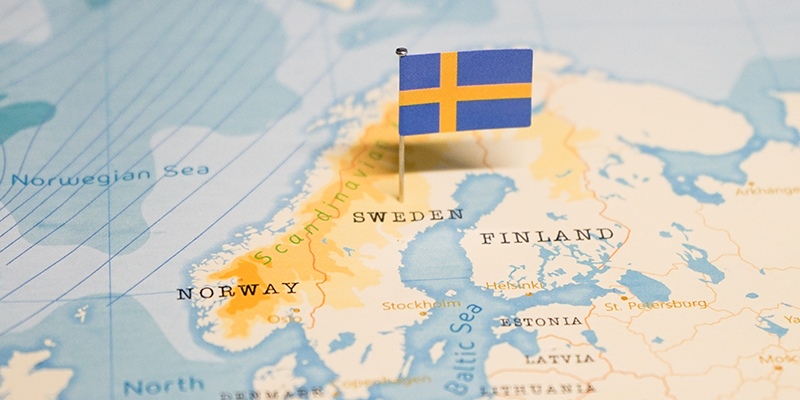
Swedish Govt lawyers advise against 'conversion therapy' law
Claims of abuse against LGBT people are regularly cited as reasons for new laws on conversion therapy. However, across the UK, verbal and physical abuse is already criminalised, whoever it is carried out against.
As the campaign in the UK enters its seventh year, not one example has yet been found of a practice that ought to be outlawed that isn’t already.
The UK is not the only target for these new laws. Campaigns on ‘conversion therapy’ exist across the Western world.
But you won’t hear from activists about the failures to progress new laws elsewhere. The most interesting case is Sweden.
Famous for its once radical adoption of transgender ideology, Sweden was the first country in the world to introduce gender reassignment surgery.
In recent years, a more cautious approach has been taken by medical institutions, with stricter age limits in place for hormone treatments.
Nonetheless, many there have called for a new law on conversion therapy. There is plenty of political will, and measures were proposed by the Government.
The proposals didn’t stand up to scrutiny, however, when put to a special investigation led by senior lawyers.
The resulting ‘Swedish Government Official Report’ concludes that the Govt should not introduce a new criminal ban on ‘conversion therapy’. Nor should it introduce ‘conversion therapy’ as an aggravating factor, nor write a law merely to ‘send a signal’.
Opening the section on ‘conversion attempts’, the Report explains that “the investigation takes a position on whether the criminal protection against conversion attempts needs to be strengthened”.
The Report was initially intended to cover “measures against virginity checks, virginity certificates and virginity interventions”. The Government then extended the brief to include ‘conversion therapy’. The official Report recommends creating new offenses related to the former, but not on conversion therapy.
The Report comprises some 372 pages. The detailed legal analysis explains to the Government why it should not introduce a new criminal law.
The senior lawyers explain that any ‘conversion practices’ – attempts to change a person’s sexuality or gender identity – that would be suitable for criminalisation have already been outlawed.
Instead existing provisions in the country’s criminal code should be used to better tackle genuine abuse.
It states: “The current regulations provide good opportunities to intervene criminally against various forms of influence for the purpose of conversion.”
“…It may be about LGBTQ people being exposed to unlawful coercion, assault, unlawful deprivation of liberty, unlawful threats, marital coercion or molestation. An attempted conversion may also include acts that constitute slander, insult or incitement against a group of people.”
The lawyers explain that even some of the less serious behaviour put forward for criminalisation is already covered by existing law, including “Repeated unwelcome attempts to verbally influence someone”.
“The acts that fall outside the punishable area [that are not already illegal] are not serious enough to justify criminalisation”, it concludes.
Might there be another justification for bringing in a new law? Might a specific offence better protect LGBT people, or might it send a vital signal?
The legal experts give an emphatic ‘no’. They envisage several possibilities. One is bringing in a law that criminalises a person who carries out actions that ‘lead to a harmful effect’. But this sort of law would be imprecise and so “risks becoming very unpredictable”.
Likewise, any vagueness in the definition of a law would inadvertently capture what should be legitimate behaviour. “Repeated solicitations” or “psychological influence”, for example, would cover a parent who “in a normal conversational tone” questioned three times “the child’s sexual orientation or gender identity”.
They also denounce ‘sending a signal’ as the basis of a law: “a new penalty provision should not be introduced simply for the reason that the legislator wants to send a signal”.
On aggravating factors, the lawyers summarise: “such a provision would probably not contribute in any effective way to a strengthened protection against conversion attempts”.
The senior lawyers’ conclusion is plain: “the assessment is that further criminalisation would not constitute an effective means of countering conversion attempts”.
Sign up to the Let Us Pray campaign for updates - join the campaign.
See also: Church leaders warn Starmer of hostility Christians face on ‘conversion therapy’
New Irish Govt Programme, same ‘conversion therapy’ promise
2026-01-30 09:42:59The Traitors and the misguided conversion therapy debate
2026-01-23 15:07:47The Traitors and the campaign to ban ‘conversion therapy’
2026-01-16 07:47:52
